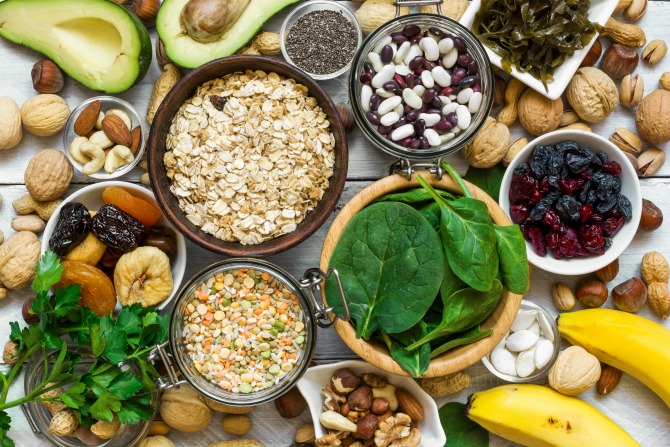Common food intolerances and what to do about them

Posted on
Last week we talked about the difference between a food allergy and a food intolerance.
While a food intolerance isn’t the same as an allergy in the sense that it doesn’t affect your health, it can certainly affect your quality of life and cause you discomfort.
Here are some common intolerances and how to go about managing them.
FODMAPS
You may have heard this term before. It stands for Fermentable Oligosaccharides, Disaccharides, Monosaccharides and Polyols. These types of carbohydrates are found naturally in many foods and can be added to others.
A lot of research has been done over the past 10 years or so that’s found a low FODMAP diet is the best way to manage symptoms of Irritable Bowel Syndrom (IBS) and help people discover exactly which foods they’re intolerant to. People are rarely intolerant to all FODMAPS and by the time the person has completed the low FODMAP diet and challenge protocol with their dietitian (more about this below) they know exactly what foods to limit or avoid in order to minimise their symptoms.
Many individuals feel they may be intolerant to gluten, however, this needs to be interpreted with caution. Gluten is a protein, not a carbohydrate, which means that it doesn’t cause problems in your digestive tract unless you have Coeliac disease, a condition where gluten activates your immune system and, as such, is an allergy, not an intolerance.
What’s interesting about a suspected ‘gluten intolerance’ is that many foods that contain gluten also contain fructans, an oligosaccharide or FODMAP, which is much more likely to be what’s causing your symptoms. It may be that you can tolerate a small amount of gluten (i.e. one small cracker) but a whole sandwich (two slices of bread) is too much. If you can have small amounts of gluten-containing foods but not large amounts, or only some gluten-containing foods trigger your symptoms, it’s unlikely that it’s gluten causing your symptoms, it’s something else.
Food chemicals
Food is a mixture of thousands of different types of chemicals that can be either natural or added. Some people are not able to tolerate large amounts of these chemicals and once they reach their ‘threshold’ can experience a myriad of different symptoms.
This is a complex area of nutrition, well beyond my expertise, so if you suspect that this is going on for you, an accredited practising dietitian experienced in this area is the best place to start.
What to do if you suspect a food intolerance?
Firstly, don’t self-diagnose – slowly step away from Dr Google!
You may think you can pinpoint exactly what food is causing your symptoms, but unless you’re eating that food (or ingredient) in isolation, you really can’t be sure. This is especially true with food intolerances. Many symptoms of food intolerance happen in the lower digestive tract (large intestine) and it takes 12-24 hours for food to get there after you’ve eaten it. If you experience symptoms straight after a meal, it’s not likely that meal that caused the symptoms. What is instead happening is that that meal caused the food in your whole digestive tract to move along and what you ate the day before is most likely the food giving you grief now.
A qualified dietitian uses systematic processes such as food symptom journals and elimination diets to help you clearly identify what exactly is causing your symptoms. There’s no point eliminating foods if you don’t have to, so you may as well get it right and keep your diet as varied as possible – especially when we know that a well-balanced, varied diet that is the biggest predictor of health.
Improving overall diet quality is a good place to start
As a nutritionist, my job is to help people improve their overall diet quality. This means helping them choose more whole foods, increase their intake of vegetables and fibre, and reduce their intake of processed foods high in sugar, fat and salt and low in nutrients like vitamins and minerals.
I’ve had many clients clear up the majority of their gut symptoms by simply eating a better-quality diet, meeting their daily fibre needs, upping their intake of vegetables, drinking more water and getting more regular exercise.
Never underestimate what small, consistent changes to your diet and lifestyle can do for you. If you’re ever confused about where to start to make those changes, seeing a qualified nutrition professional is the best place to start!


Leave a Reply
You must be logged in to post a comment.